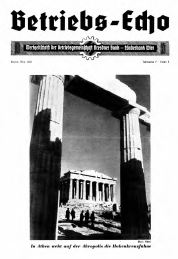
We kindly inform you that, as long as the subject affiliation of our 300.000+ articles is in progress, you might get unsufficient or no results on your third level or second level search. In this case, please broaden your search criteria.

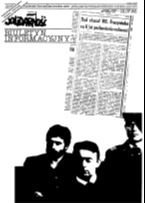
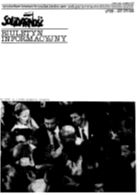
among others: * Przesłanie dla Solidarności * Powrót ze spotkania z Ojcem Świętym
More...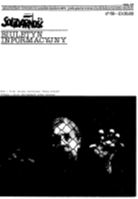
among others: * Zobaczyć na własne oczy - wywiad z Michelem Piccoli *Aktorzy nie dają się podejść
More...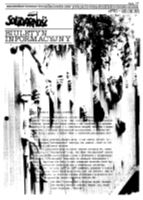
among others: * Gospodarczy dorobek stanu wojennego * Sprawozdanie TKR "Hutmen"
More...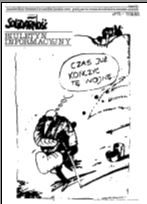
among others: * Lelewel /Liceum im-Joachima Lelewela w Warszawie * fundusz rozwoju rolnictwa - oferta Kościoła
More...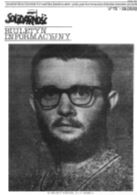
among others: * PROCES JANUSZA PAŁUBICKIEGO * "Głos" - program bieżący
More...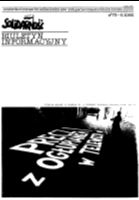
among others: * Rozmowa z Wiktorem Fulerskim * Pozostali w więzieniach
More...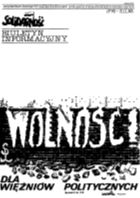
among others: * Akt oskarżenia KOR-u * "Bądźmy solidarni" - "Solidarność" Ursusa
More...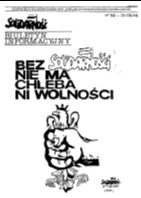
among others: * SAMORZĄD W ZAKŁADACH PRACY * SZKOŁA I WYCHOWANIE
More...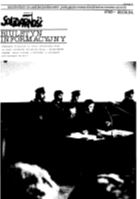
among others: * Oświadczenie w sprawie podwyżek cen, Stanowisko w sprawie wyborów do Rad Narodowych * Prawo i bezprawie
More...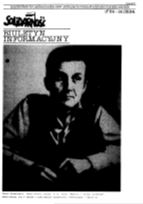
among others: * WRONIE ZWIĄZKI. Czy bojkot przetrwa mimo przywilejów? * W ZAKŁADACH PRACY. Ludzie nie rwą się dospektakularnych akcji
More...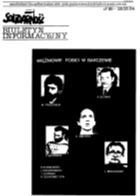
among others: * Dawid Warszawski "Cena uastępstw" * List otwarty mec. Siły Nowickiego
More...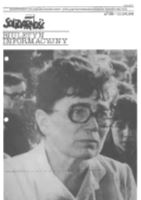
among others: * Wojna krzyżowa * Przeciw kościołowi
More...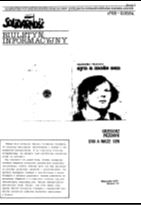
among others: * Dlaczego bojkotujemy wybory * Nie muszę obawiać się o przyszłość
More...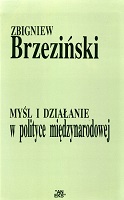
re-digitized copy of the Edition of ANEKS Publishers, London 1988
More...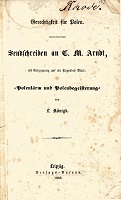
published 1848 in Leipzig by Verlags-Bureau. First pages give the text of the Leaflet, to which the author wrote this replika addressed to the German historian and writer Ernst Moritz Arndt (1769-1860) // Copy of the original print in GERMAN FRAKTURA. To be read only by readers who are familiar with this FRAKTURA font.
More...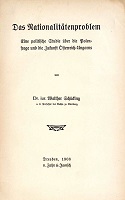
TEXT IS PRINTED IN GERMAN FRAKTURA, TO BE READ ONLY BY READERS BEING FAMILIAR WITH THIS FONT!! // Since 1931 until his death (1935) the author has been the first and only German judge at the Permanent Court of International Justice in The Hague. // From his introduction: „The following study aims to put one of the most important questions of day-to-day politics in the light of science in a generally understandable form for a larger audience. The glaring light that falls on the aberrations of our reactionary nationalists will at first startle some patriotic readers. However, this reader should have long since become puzzled when he sees the French nationalists rightly portrayed in his "national” daily newspaper as a backward group and when he reads about the atrocities of the Union of Genuine Russian People. Isn't it just a gradual difference in injustice, based on the diversity of culture, between killing or expropriating political opponents? The following pages try to explain the effects of the nationalistic disease on us. May then the wonderful word from the Bible come true: "The truth will make you free".” // Booklet published in 1908 in Dresden by v. Zahn & Jaensch Publisher.
More...
RE-DIGITZED COPY OF THE GERMAN VERSION OF SVATOPLUK ČECH’S BOOKLET OF POETRY, PUBLISHED IN 1897 BY J. H. W. DIETZ IN STUTTGART.EXTRACT FROM THE 1987 PUBLISHER’S INTRODUCTION TO THE BOOK: If one wants to describe the basic tone of Slavic poetry in two words, one must say: it is the tone of a peculiarly gloomy melancholy that echoes everywhere in these songs of a family of peoples, constantly pressed down and oppressed by superior nations, but it is a tone that occasionally turns into its opposite: the outbursts of despair and determined ire. It is only too understandable beside the gloomy melancholy, that tone of desperate wrath. Who never, or only fleetingly, has seen the bright, clear day of freedom, will sing much more softly as the others when complaining and resenting himself, but will as well sing much harder when rumbling and feeling anger. For misfortune kills the midtones and sharpens the extremes of sensation.Having this in mind it can easily be understood that the consciousness of togetherness, which is erupting today among the opressed people in all countries, must be mirrored, above all, by the socialistically geared translations of literature, especially the literature of the Slavic peoples. It is this consciousness that determines the present (entirely free) transmission of the "Songs of a slave" by Swatopluk Čech from Bohemian into German.
More...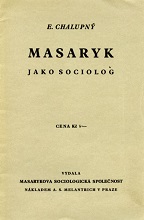
Digitized copy of the Booklet published in Prague 1937 by A. S. Melantrich Publisher. FOREWORD OF THE AUTHOR: During some celebrations of Masaryk, I was entrusted with the task of explaining the significance of his sociological work. In 1925 it was a joint meeting of the "Masaryk Sociological Society" and "Social Institute", which was founded on March 5, E. Štern about Masaryk as a Social Politician. In 1930, the celebration was held at the "Free School of Political Science" on March 11, with individual speeches (Dr. V. Joachim, Dr. K. Hoch, Dr. H. Trauba, Dr. MA Zimmermann and Dr. J. Folprechta) were published in 5th issue of 2nd annual volume of the "Free School of Political Science Magazine". In 1935 it was again a joint meeting of "Masaryk Sociological Society" and "Social Institute" on March 5, which, after my speech, lectured Dr. Ed. Beneš about Masaryk as a politician, and the celebrated meeting of "Free Schools Polit. nauk "on March 6 with Dr. V. Joachima, Dr. W. Wohryzka, Dr. K. Hoch, O. Graf and ms. Two of these speeches, which I have written in writing, I present here, and I also re-write the article from "New Freedom" 1925, which it expediently supplements; others were spoken with the floor and not enrolled. The first edition of this book was published in the diary "Tribune" on 6 and 7 March 1925, the second in the New Freedom Week of 1925, the third in the "Free School of Political Science Magazine." Because I have always tried to make it possible he did not repeat, on the contrary, that my own speeches about the same subject were supplemented, I hope that even in this overlapping overprint, the public will find the necessary lessons quite comprehensible.
More...